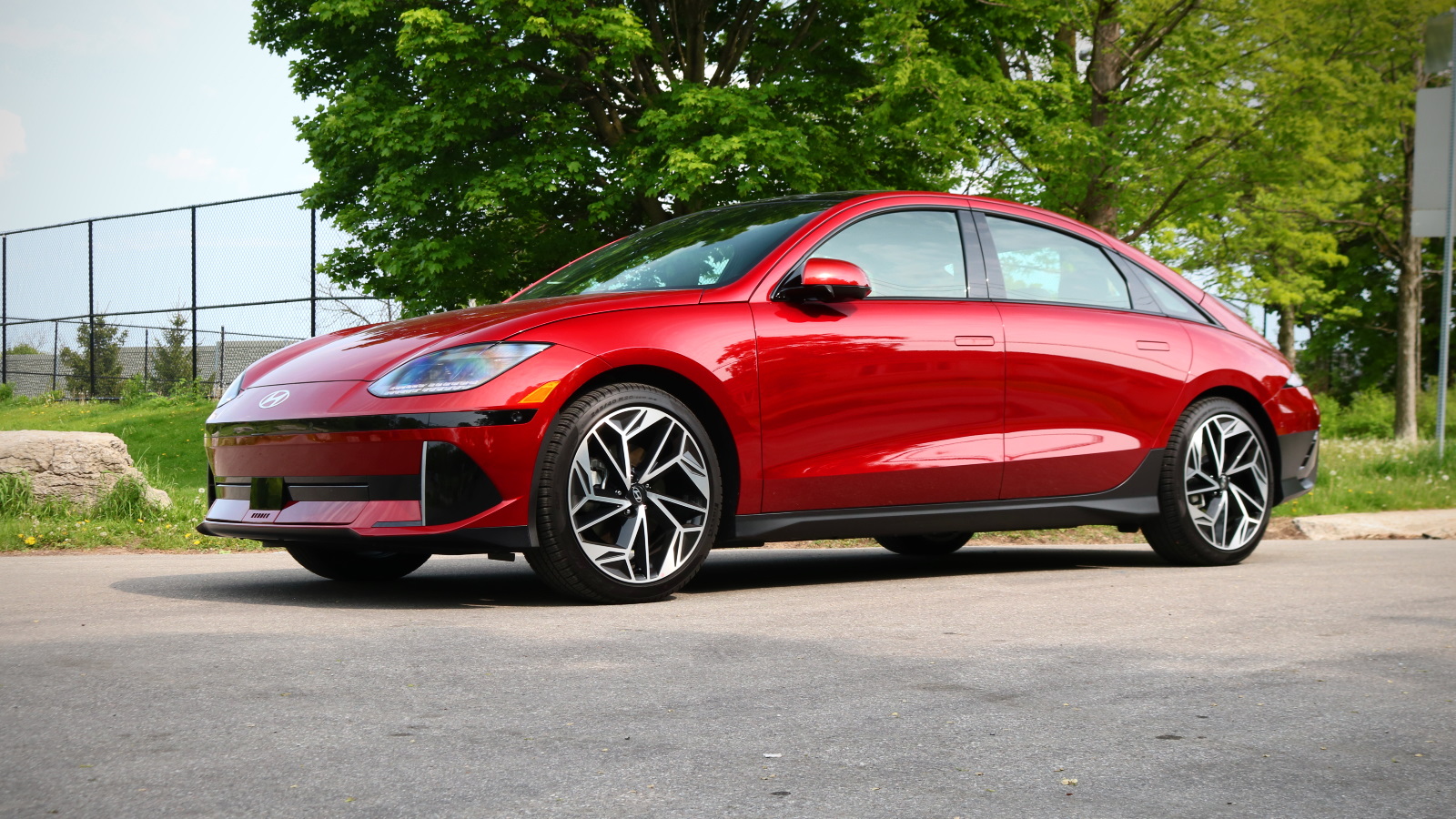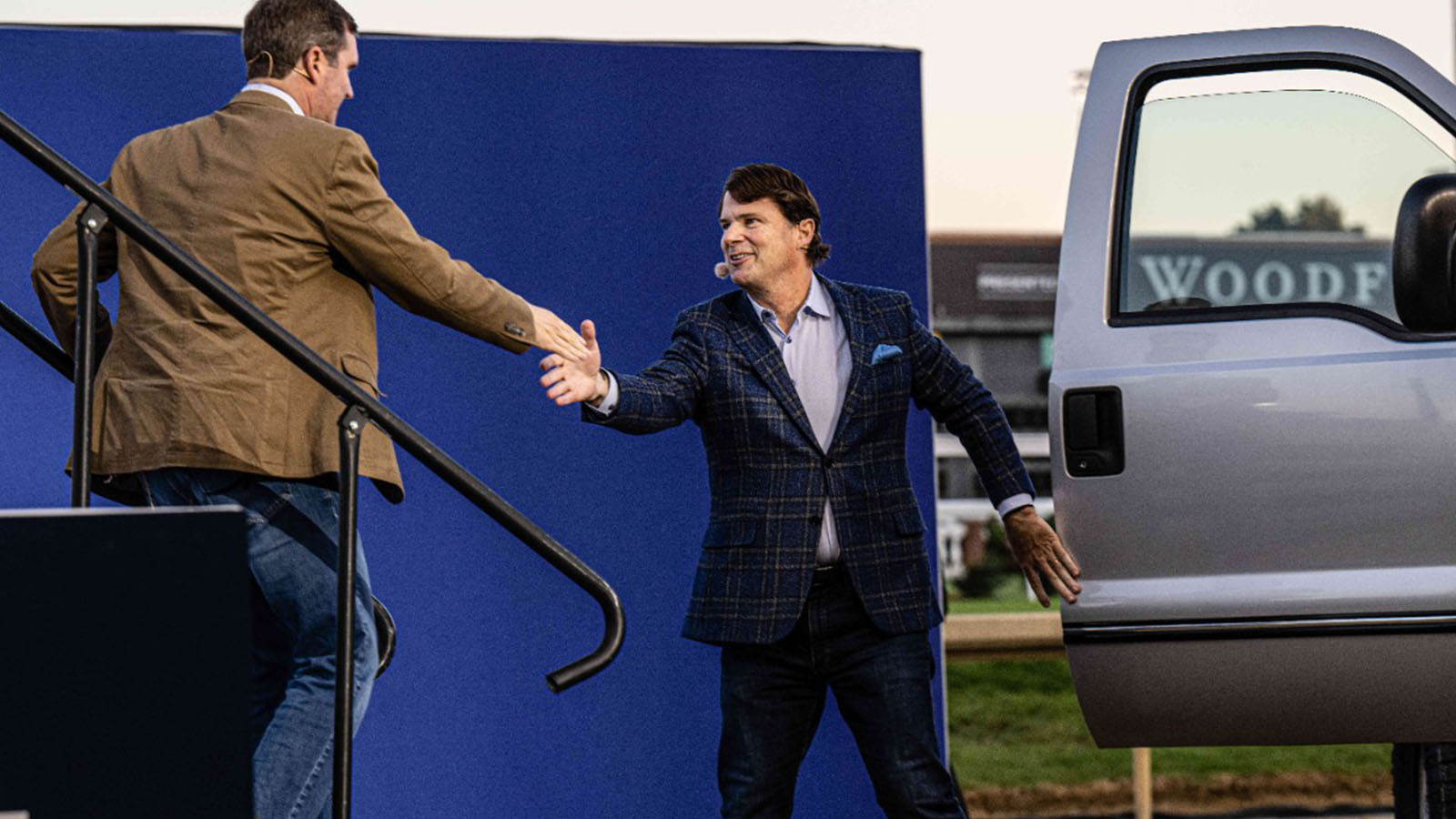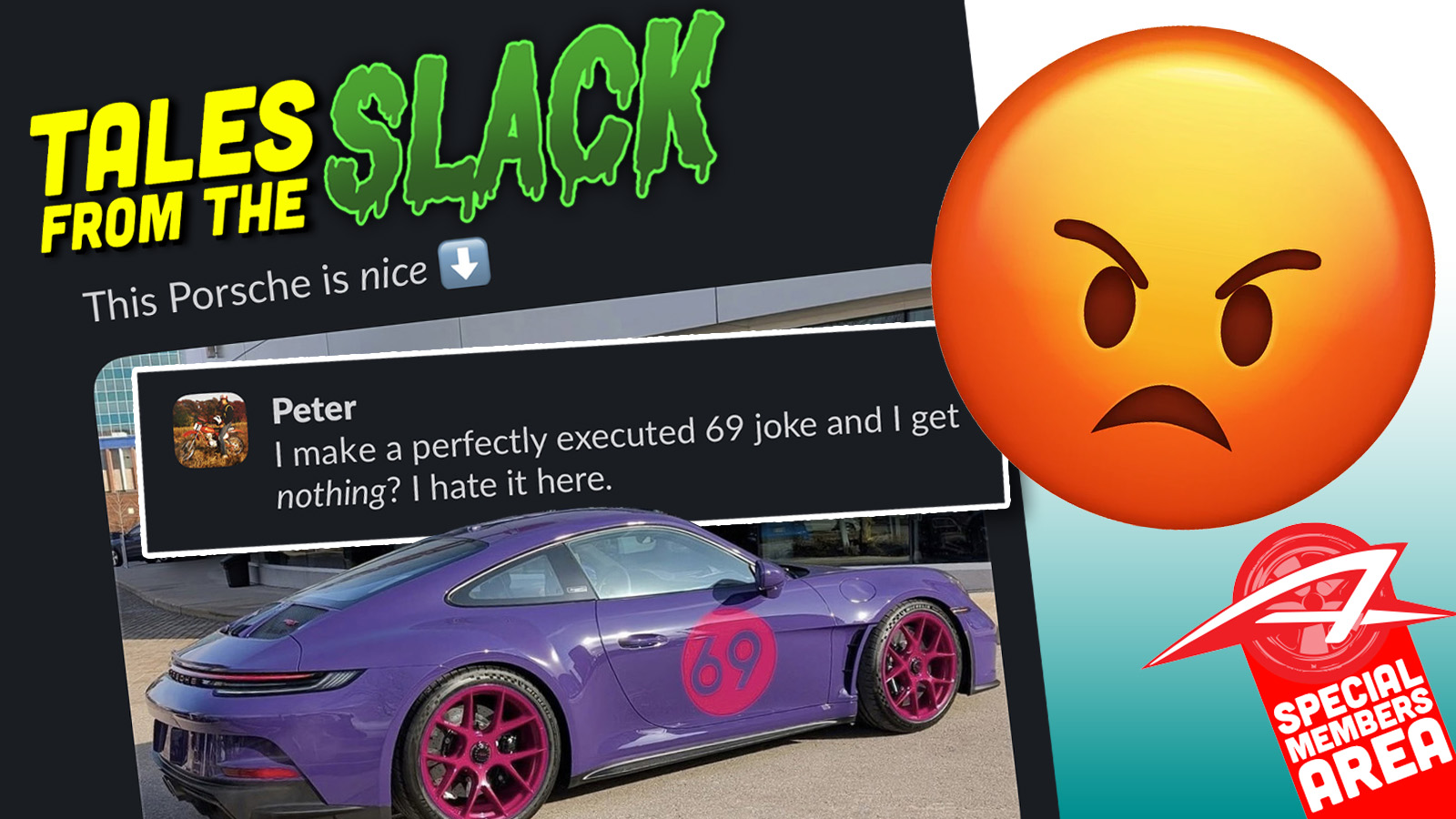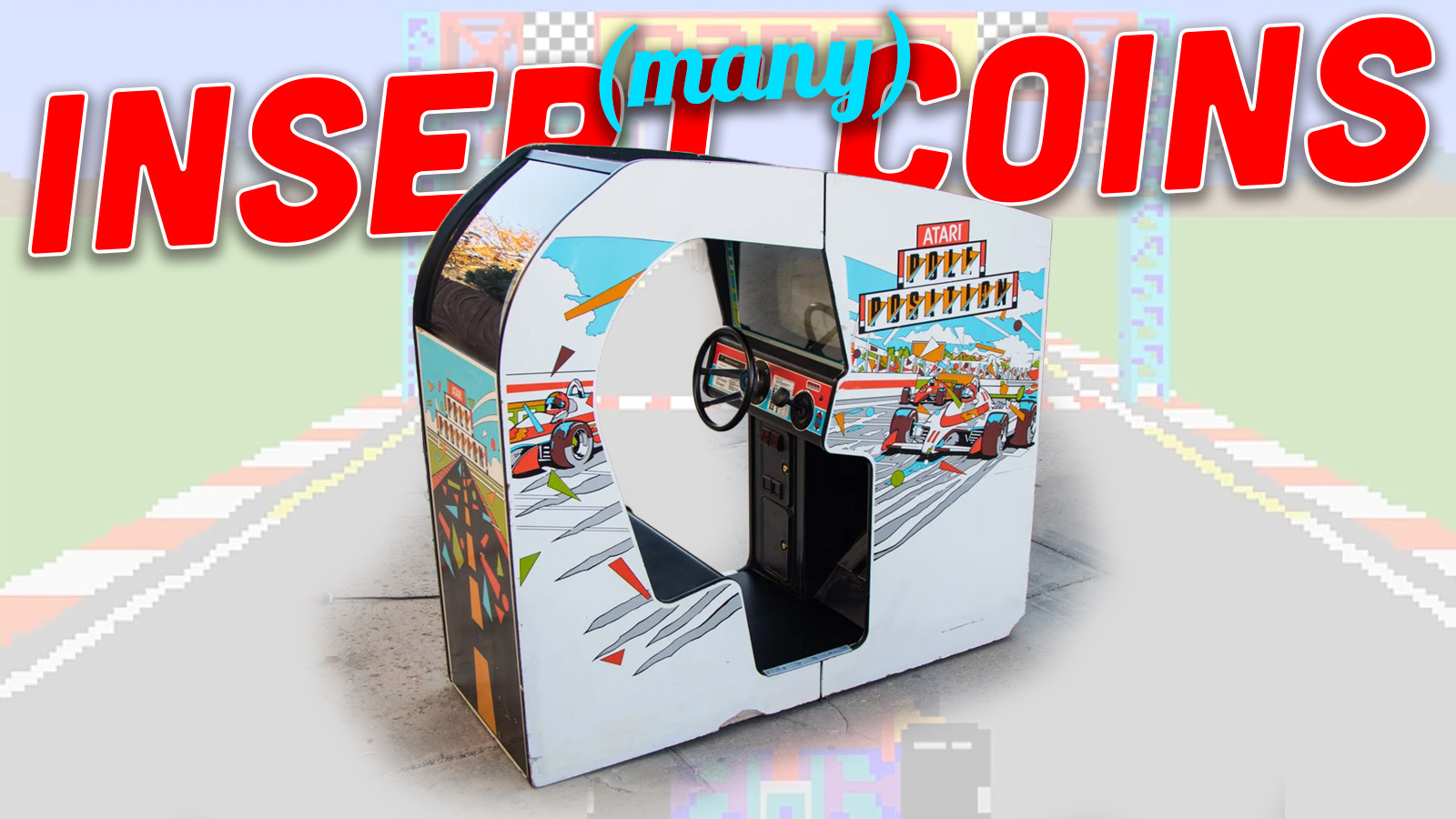Ford and Tesla got everyone excited yesterday when they announced they’d share a common charging port and charging network starting as soon as possible. There are many plugs for EVs, depending on where you live and what you drive. The lack of a common standard is a huge stumbling block for EV adoption and Tesla, by itself, was really mucking this up for everyone. Ford, of course, only mucks it up more. Let’s embrace the mucking.
It’s not fun to write that Tesla should “win” anything because, first, it’s a corporation. Second, it’s Tesla, and that brings an enormous amount of irrational love and irrational haterism. There is no objectivity in this debate so I’ll state, again, that I think Tesla still mostly builds the best electric cars, even if the company’s leader is often annoying.
So, Tesla should win. To start this Morning Dump out, I’m going to lean into some analysis, and then we’ll talk about Hyundai battery plants and the like.
Tesla Has The Better Charging Setup

The launch of new technology always results in a war of standards. In “The Box: How the Shipping Container Made the World Smaller and the World Economy Bigger,” author Marc Levinson details the many years of attempts to get the world to agree on one damn size for the shipping container. It seems obvious in retrospect, but before containerized shipping there were whole industries of people whose main job was to figure out how to fit goods of different sizes into different ships. It took decades to get it right.
This is what’s happening in electric cars. Various groups, in various countries, trying to solve a problem that hasn’t been solved before. Here’s a list of most of the common chargers, of which there are at least nine. Most of these are technology specific (in the U.S. a lot of the older cars use CHAdeMO and the newer ones are CCS Type 1), though many are also geographical (China has its own standard, for instance), and one is company-specific: Tesla.
It feels backwards to argue that the odd-man-out, annoying fly-in-the-ointment should emerge victorious. Up until yesterday, I’d have argued that CCS should win (and that the Europeans should ditch CCS Type 2 and join our standard), merely on the principle of just making everything easier. I’d still argue that Apple should ditch the annoying Lightning cable for my phone, for instance.
When Tesla announced a sort of half-measure interoperability and open charging standard last year, we mostly balked, concluding:
[W]hile it’s now theoretically possible for other automakers to adopt Tesla’s style of charging connector, the biggest winners in this whole story are likely Tesla owners seeking different charging networks. While Tesla’s connector does hold advantages such as its small footprint, it’s unlikely that other major automakers will abandon CCS for it. While it would be great to eventually see a global charging standard, it looks like we’ll continue to use a mix of connectors for the foreseeable future.
Well, now a major automaker did adopt the standard (or will, at least). And this is why it’s easier to argue that everyone should adopt Tesla’s standard. Tesla was here first and yet, given many attempts to make a better charger, no one really has. CHAdeMO is worse. CCS is worse. CCS Type 2 is no better (Tesla CEO Elon Musk, on a Twitter spaces with Ford CEO Jim Farley yesterday, argued it was bad and “designed by a committee,” which is anathema to someone who is not normally cooperative).
The Tesla connecter is the best and, in the United States at least, the Tesla supercharging network is vastly superior. I’ve never driven to a Tesla Supercharger to find that it is, in fact, in the parking lot of a jail (true story, near Palm Springs). I’ve never driven to a Tesla Supercharger and found it broken or unable to render a charge (about 40% of the time I try to charge an EV with a CCS charger I find it doesn’t work on the first attempt).
This is a chance to let Betamax win, frankly, and rather than try to fight it we should all just accept it (imagine if 40% of the time you tried to put a VHS tape into your player it just didn’t work for no reason). The faster the better. And what of the many charging stations already built? First, adapters exist already to fix this problem. Second, many of the charging stations out there aren’t great and are going to need to be replaced in the next 3-5 years anyway.
Hyundai And LG To Build $4.3 Billion US battery Plant

No automaker has been hurt more by the Inflation Reduction Act–whose full $7,500 tax credit applies only to cars assembled in North America–than Hyundai/Kia/Genesis. The Korean company was close to establishing itself as a major powerhouse in the United States, with the combined sales of the Kia EV6/Hyundai Ioniq 5 overcoming everything but the Tesla Model 3 and Model Y in Q2 2022. In the first quarter of 2023, the Hyundai and Kia EVs had dropped 8% and 36% in sales, respectively.
This will normalize as the market adjusts to tax credits, but until Hyundai and Kia can start building batteries here, they’re at a huge disadvantage.
So that’s exactly what’s happening, with a $4.3 billion battery plant coming to Georgia, according to Reuters:
Hyundai and LGES said construction of the factory in the state of Georgia will begin in the second half of 2023, with battery production starting at the end of 2025 at the earliest.
It will have an annual production capacity of 30 gigawatt-hours (GWh), enough for 300,000 EVs, they said.
That’s a lot of EVs.
Ford Sees China As Its Main Rival

Here’s another fun one from Jim Farley, via Reuters again, about who he sees as the real threat:
“I think we see the Chinese as the main competitor, not GM (GM.N) or Toyota (7203.T),” Farley said at the Morgan Stanley Sustainable Finance Summit. “The Chinese are going to be the powerhouse.”
[…]
To beat Chinese automakers, Farley said Ford needs distinctive branding, which he believes it has, or lower costs. “But how do you beat on them on cost if their scale is five times yours?” Farley said. “The Europeans let (Chinese automakers) in – so now they are selling in high volume in Europe.”
I think the hint-hint here is: Don’t let the Chinese in like the Europeans did.
The No-New-Normal, Many-Different-Normals Continues

I will continue to reiterate that, in this weird non-recession period, there is not going to be a “new normal” for all automakers and instead there will be many different normals.
A new analysis of overall passenger vehicle sales in the United States from research group S&P Global Mobility confirms this:
As the market awaits a clear signal that either growing new-vehicle inventories or consumer affordability issues will emerge as the main determinant of auto sales trends in the immediate term, new U.S. light vehicle demand in May is expected to soldier on uneventfully and maintain its unsteady climb.
S&P Global Mobility projects new light vehicle sales volume in May 2023 to reach 1.31 million units, up 18% year over year, and representing the 10th consecutive month in which volume has improved from the year-prior level. This volume would translate to an estimated sales pace of 14.5 million units (seasonally adjusted annual rate: SAAR), a step down from the month-prior result, but reminiscent of ongoing monthly patterns in this metric.
On the supply side of the equation, supply chain issues have continued the easing that began in the second half of 2022, resulting in consistent increases in retail advertised inventory levels. As we approach the summer months, vehicle listings have plateaued at approximately 2 million units, 67% higher than a year ago, according to S&P Global Mobility’s proprietary analysis of advertised dealer inventory.
The good news for consumers is that 40% of vehicle listings are now below MSRP, which shows that you can get a deal if you can be flexible on what you want and where you buy it.
The Big Question
Should Tesla win? Am I wrong? Is VHS the way?

Photos: Tesla, Ford, Toyota
(This post contains an Amazon book link and we’ll get a commission, maybe, if you buy stuff there).









“Should Tesla win?”
Yes
“Am I wrong?”
Yes. From a ‘number of BEVs on the road’ and ‘number of stations installed’, Tesla is NOT the ‘odd man out’. Telsa has the highest number of both because they’ve been at it in a SERIOUS way the longest (Nissan was not really serious with their token-effort Leaf).
“Is VHS the way?”
BEVs in general are VHS.
Hydrogen is Betamax.
Tesla will throttle back the charging speed rates at Supercharger stations for non-Tesla cars…
Since non-Teslas will be paying per charge, I’d say throttling is a more likely possibility for lifetime-free supercharging Teslas.
Why not both? Someone has to pay for all that sweet advertising on Twitter.
Ford for a long time under Richard Parry-Jones and the engineering teams he had in Europe produced mainstream cars that were a bit fun to drive. I’m not talking about say a Fiesta ST, but rather even the base model Fiesta and others relative to its immediate competition was (according to many reviews) more enjoyable to actually drive. I personally experienced this when I bought my Fiesta in 09, I tested it back to back with a Mazda 2 which is on the same platform and the Ford though having a worse interior was just that bit more fun and so got my money. And then years later, just recently driving a rental Ford Galaxy minivan, even that had a good chassis underneath that just raises it above hum drum. Basically I think that is how Ford can differentiate themselves when electric goes mainstream and cabins etc become more or less homogenous in terms of layout and features – spend a bit of extra effort engineering some enjoyment into the inputs of your mainstream model and then you have a point of difference.
Committees don’t produce superior designs — they produce compromises. The Tesla system is based on CHAdeMO protocols but implemented in a much more robust and easy to use physical connector. Plug in, walk away, it just works. They simply have the best design and the greatest market penetration. Done.
Tesla should win China should be banned from importing anything made by jailed servants or stolen technology.
Well China could easily say nope there are problems with the paperwork for certain minerals, then a lot of EVs manufacturers will be screwed.
When first gen Leaf came out in 2010, there was a scare because a flare up in anti Japanese sentiments in China, there was a stop in rare metal exports to Japan. Nissan had to scramble (they really couldn’t).. https://phys.org/news/2010-09-traders-china-halts-rare-earth.html
Ideally we don’t buy things from people who do bad deeds only people with a shiny halo on their heads, but in reality it is freaking hard.
“Tesla should win China should be banned from importing anything made by jailed servants or stolen technology”
America has plenty of its own “jailed servants”:
https://news.uchicago.edu/story/us-prison-labor-programs-violate-fundamental-human-rights-new-report-finds
https://www.archives.gov/historical-docs/13th-amendment
America has also done its share of stealing other countries tech right from the beginning:
https://theworld.org/stories/2014-02-18/us-complains-other-nations-are-stealing-us-technology-america-has-history
https://www.history.com/news/industrial-revolution-spies-europe
https://www.technologyreview.com/2021/01/28/1016867/lunik-cia-heist-steal-russian-satellite-space-us-ussr/
https://nsarchive.gwu.edu/briefing-book/intelligence/2018-01-31/scavenging-intelligence-us-governments-secret-search-foreign-objects-during-cold-war#_edn2
Like in all previous format wars, whichever standard is adopted by the adult video industry will be the winner.
Not here link shame anyone, butI’d really rather not see that video…
Did somebody here order pizza?
Oh, hello there, Tesla repair man.
Wait, what are you doing to my car!?
This is an underrated comment right here!
Well the plug does sorta go in the butt of the car…
The whole free exchange of information and ideas is great, but comments like this are the reason for the internet. Thank you.
I mean there are multiple adult videos filmed in Teslas while driving on auto pilot, so….
There’s a problem with dein Cable?
That’s why they called me. Ich bin expert.
As Ford and Tesla make software improvements to the charging architecture to improve the charging experience, will they be sharing the secret sauce with each other? Since both are part of the ChargeX consortium – https://inl.gov/chargex/ – will they share, in a timely fashion, information with other charger mfgs? With other car mfgs?
Inquiring minds want to know!
“Works consistently” and “widespread” are pretty good measures of “better” for a charging network. I don’t care how many theoretical kW a station is when the actual number when I plug my car in is 0.
Main problem with the Ford Tesla thing is it does not get us closer to one standard. What I am interested to see is if one of the other 2 dummy American companies get in bed with Tesla next. Cause you know they don’t like to be outdone by any other Big 3 irrespective if its a good idea or not. I would of expected this from FCA Stellantis since they love Tesla for selling them so many tax credits for so long. Zero expectation from an European or Asian brand from aligning to the Tesla charger port. If one of the other Big 3 jump on the wagon then we are screwed. Also no way this can be an exclusive only Tesla & Ford deal, surely Tesla would of objected to limiting the partnership to just Ford.
Yeah, if Stellantis and GM join this crowd, we get NACS. If they throw their weight behind CCS (perhaps investing in a joint venture to build out well-maintained charging stations), we see a competition that could really heat up before we settle into one standard. I could see them pulling in Hyundai or someone into that CCS venture, too.
Unfortunately, a big competition is going to increase EV hesitation among the folks who just want a standard they can expect to remain available.
Unfortunately (slightly different to VHS vs BetaMax), competing standards in a technology that could benefit all of society does not work for the benefit of the consumer. It’s like CDMA vs GSM in cell phone telephony. The US (in its wisdom) let the various startups chose how they wanted to set up their networks. Some chose CDMA and others chose GSM. Of course they were not compatible, forcing the consumer into the walled gardens of whichever tech they chose. Other countries insisted on GSM and had far superior networks that were faster, more reliable (higher population densities didn’t hurt) and easier to implement.
Having a single charging network will make it easier for consumers to say “I’m going electric”. Whatever charging station they pull up to, they’ll be assured that the plug will fit, just like the gas nozzle at the petrol station. And perhaps EA and the others will get their s—t together had having their chargers actually work at level 3.
Sorry if I seemed positive about the competition. It will certainly not be good in this situation, but it may happen anyway. Much like GSM/CDMA, the US is not requiring a universal standard, so history may well repeat.
Tesla “open sourced” the charging standards a while back, so you don’t really need any deals with Tesla. Aptera supposedly will also use the adaptor when they ship their cars.
It is a boon for designers, as the Tesla standard is much smaller, you don’t need as big of a door. Also for end users, it locks (so people can’t pull the adaptor out where you are charging and away) and it is lighter and just works much better.
I was going to say the Beta/VHS comparison isn’t a good one because Beta wasn’t superior in any way that actual users cared about and was vastly inferior in the ones they did (yes, I said it. Come at me Beta Bros 😛 ). Then I read the comments and saw people bench racing specs that in the end probably won’t matter, and now I think you might have a point.
Yeah, people forget that money and convenience are bigger motivators than most other factors. VHS was cheaper and offered 2 hour tapes first. It should be clear in retrospect why it turned out the way it did, but the myth is a nice enduring tale.
And you are right that vehicle specs work out kind of the same, with the same sorts of narratives around them.
Tesla has done a lot of things I don’t agree with, and I’ve been screwed over by Tesla worse than most people who like to deride Tesla. That being said they’re the best at making BEVs out of all the other automakers and they have the best charging network by far and the “NACS” plug and socket is a big part of why their charging network is so good.
What I think will happen is that the White House will come out with some BS executive order to require CCS for all new chargers before Ford adopts the “NACS” as a way to screw over Tesla because they hate Elon, or hell maybe they’ll go full authoritarian and nationalize the Tesla Charging Network and make it just as unreliable as the other charging networks.
If Ford adopts the “NACS” It’ll give Tesla some serious staying power and with Ford on their side (to a degree) they got a heavyweight in their corner. Then it’s no longer Tesla against the world, it’s Ford and Tesla against the world.
NACS is not an open standard, and you can’t trust Tesla not to mess with it for their own benefit at the expense of other automakers. Likewise, all the existing chargers and all the already-sold CCS based cars aren’t going away, and CCS isn’t going away internationally. Even in this case of Ford, they’re not getting rid of their own charging network, and they’re not getting rid of CCS support.
As much discussion as there is about EVs, and as much ground they’ve gained in sales — they’re still a small percentage of cars sold (albeit growing), and a very very tiny percentage of cars that exist in the US altogether. Of the small number, most EVs are Teslas and most chargers have NACS connectors. It’s far from too late to standardize on NACS
I see below here that charging by Tesla is better.
So was video by Betamax.
More than anything, I just want there to be 1 standard, at least for North America. Even if the North America moved toward the NACS, there are still different standards around the world. (CHAdeMO in Japan, CB/T in China, and CCS Type 2 in Europe). Also, doesn’t Telsa only use NACS in North America and the other local standards in the markets where they are sold?
Yup they use CCS 2 in Europe
Tesla’s connector can handle a megawatt. Tesla’s newer (v4) chargers go well beyond 350kW.
Say it a few more times, Stan.
Resort to name-calling a few more times, wov. (Then you will have repeatedly demonstrated the cognitive maturity of a six-year-old.)